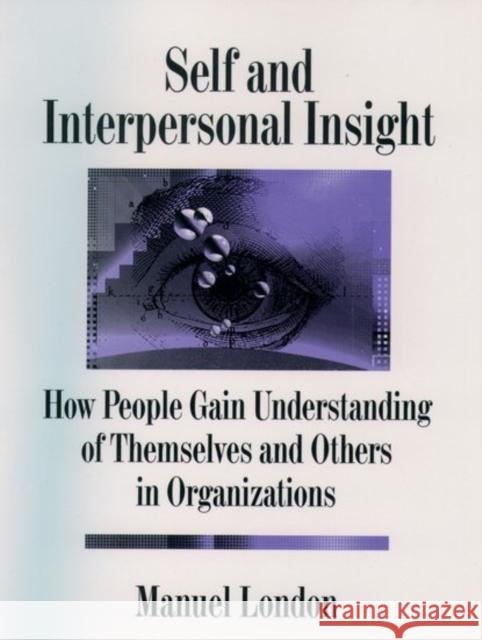Self and Interpersonal Insight: How People Gain Understanding of Themselves and Others in Organizations » książka
Self and Interpersonal Insight: How People Gain Understanding of Themselves and Others in Organizations
ISBN-13: 9780195090772 / Angielski / Twarda / 1995 / 352 str.
Self and Interpersonal Insight: How People Gain Understanding of Themselves and Others in Organizations
ISBN-13: 9780195090772 / Angielski / Twarda / 1995 / 352 str.
(netto: 283,83 VAT: 5%)
Najniższa cena z 30 dni: 288,10
ok. 16-18 dni roboczych.
Darmowa dostawa!
Bridging the gap between social and industrial/organizational psychology, Interpersonal Insight offers a practical, engaging introduction to the social cognition processes that lead to "insights" into ourselves and other people, shaping our perceptions and behavior across a variety of interpersonal situations--from one-on-one interactions to group negotiations. Combining important research results and over 12 years' experience in human resources and training, Manuel London describes how processes common to interpersonal situations in organizations can be harnessed to help link, integrate, and create more effective human resource programs. In so doing, he details how social information processing affects a person's self-image, behavior, and quality of interpersonal relationships.
London proposes a four-step model of insight formation in which a person 1) receives information about oneself and others (called "reflected feedback"); 2) integrates and reconciles the information with other information ("categorization"); 3) interprets the information ("attribution"); and 4) incorporates the outcome into perceptions of oneself and others ("cognitive re-evaluation of self-concept"). "Insight" occurs when an attribution turns into a re-evaluation of oneself or others. London goes on to offer practical suggestions on how human resource programs can be designed to enhance self- or personal insights and suggests ways to elicit and track employees' reactions to major organizational and career changes while facilitating team development.
Packed with case studies and references to the literature, Interpersonal Insight is an important book not only for researchers and professionals in industrial/organizational psychology, but for managers interested in enhancing employee satisfaction and production.











